Big game hunters shoot an estimated 50,000 rare animals a year in Africa. What sort of person does this, how do they do it, and why?
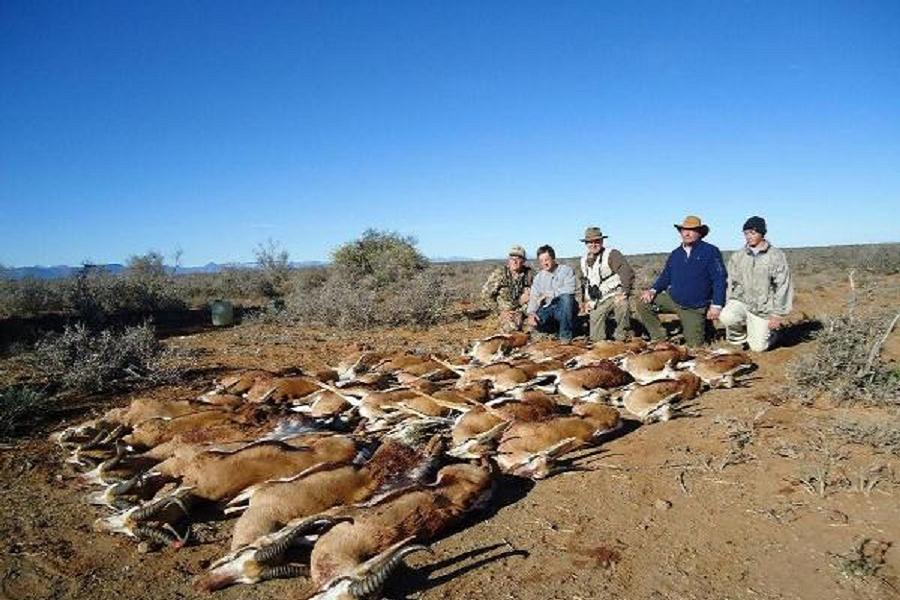
Twitter/Peter Lombard
Big game hunting is serious business in Africa. Each year, at least 18,500 hunters from wealthy countries make a kind of pilgrimage to sub-Saharan Africa with the purpose of tracking down one (or several) of the continent’s rarest and most majestic animals and shooting them dead for sport.
The trade does not shy from controversy: Proponents of safari hunting claim that their activities are part of a responsible approach to wildlife management and help inject cash into unpopular tourist destinations, while opponents point out that the most desirable trophies come from threatened and endangered species and that the money these hunters bring actually does little to improve local livelihoods.
Who are the people who travel across the world to bag big game, and what are they willing to do to indulge their hobby? What animals do they hunt and why, and how do local authorities ensure that their animals aren’t hunted to extinction, like so many others? Which are the most popular animals to shoot, and how are they handled after the fact? What is it like to travel to a distant place and hunt some of the largest and most impressive land animals in the world?
An Expensive Hobby
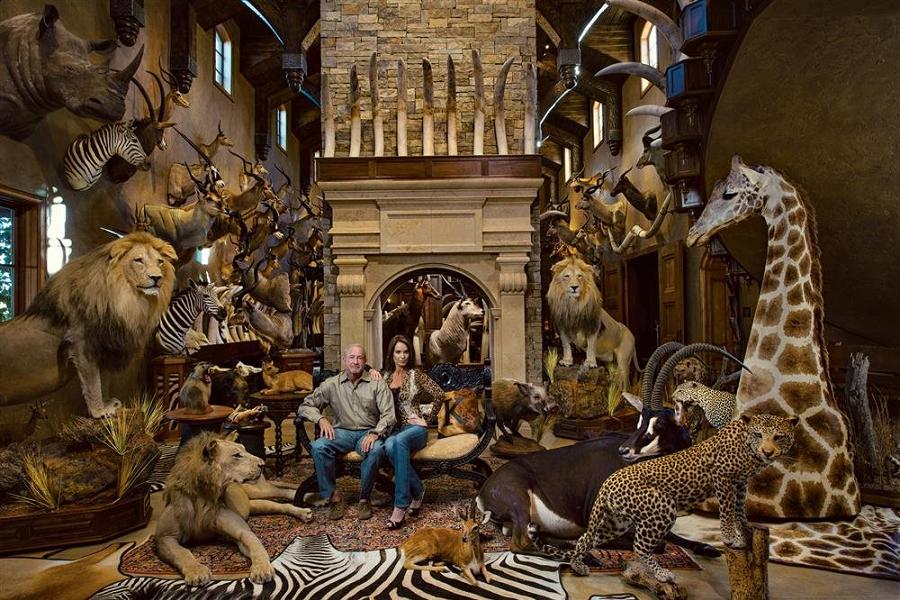
Twitter/DJ Rubiconski
The first thing to know about big game hunting in Africa is that you probably can’t afford to do it. Even a modest safari involving just a few guides and lasting only a few days runs into five-figure prices and involves more red tape than exporting missile technology to Syria.
The typical hunting trip requires several months of advance planning, during which the would-be hunter has to get a passport from his own government, request a visa from the host country’s government, make arrangements with a local agency for accommodations and logistical support, get vaccinated, buy lots of insurance and brush up on local gun laws — things which most of us don’t have the time, or means, to do.
A good hunting agency will either walk potential travelers through this process or offer to handle many of the details on their behalf. Of course, the full-service approach is pricey. One South African agency offers packages for different types of game that range from a mere $3,000 for beginners looking for a 5-day antelope hunt to over $77,000 for a 21-day lion, buffalo, and elephant shoot for one person. The per diem rate may run as high as $420 a night for each person in a given party. These packages cover meals, accommodation, and guides, but guests are on their own for airfare, taxidermy, and trophy fees, which can easily double the price.
These agencies offer hunting packages for almost any kind of animal. Plains safaris will take guests out into the veld to hunt warthogs, zebra, or any of a dozen species of antelope, from the tiny and impossibly cute klipspringer to the huge and very rare sable. They also have the option of shooting a giraffe, an ostrich, or an African wildcat called a caracal.
Dangerous game packages are for hunting animals that have a sporting chance of sending hunters home stuffed and in a box, rather than the other way around.
Crocodiles, hippos, and rhinos count as dangerous game, as does the cape buffalo, which has a reputation for turning on hunters and kneading them like bread dough under its hooves if the first bullet doesn’t kill it. Hippos have the highest body count in Africa, which is impressive enough, and their thick skin and stocky build make them a challenge for inexperienced or underarmed hunters, which is why most companies insist guests bring along a .30-caliber or heavier rifle.
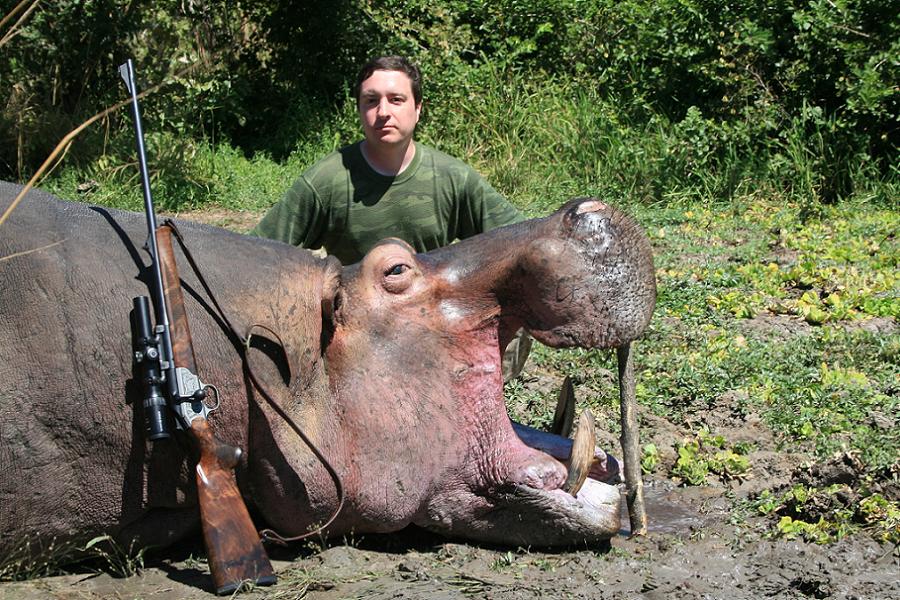
Twitter/Allen Tarpley
The African Big Five are the elephant, the rhinoceros, the lion, the buffalo, and the leopard. Buy this package, for a mere $100,000 in game fees alone, and guides will drive you out to areas where air reconnaissance has spotted the animals.
Once there, a team of helpers will either prepare ground cover or set up a blind for you to wait in comfort for the herd to pass by. Sometimes the guides will trek out to drive the game toward guests or, as happened with Cecil the Lion, they might lay bait to draw the animal out of a protected area and into a location where it can legally be shot.
Elephants and rhinos are endangered species across their entire ranges — the western white rhino was just recently declared extinct after five years without any sightings in the wild — so hunters who want to bag these animals must fill out a lot of paperwork and pay fees directly to the South African national government, rather than to the state governments that regulate more common game.
Individuals can book trips for themselves alone, or they can bring along a guest for additional fees. Family packages are available, but according to one Pennsylvania-based tour agent who requested anonymity, the most popular package by far is father-son trips for wealthy men and their teenage or even preteen sons. More importantly, the source said, the trips are about generating memories, not blood sport.
“Lots of people take their kids [on low-risk antelope hunts],” the tour agent said. “The kids can either just observe, or they can shoot also and try to bag their own trophies. It’s a real experience for them, you know? It’s something your kid will never forget.”
The source’s agency tends toward the full-service approach and offers to have its agents pick guests up at the destination country airport, and drive them off to one of their luxurious hunting lodges. Among other things, these lodges offer professionally prepared meals, an obsequious staff, and daily laundry service. The company sets guests’ parties up with guides, transportation, and trophy services such as skinning, dipping, and shipping the carcass to the taxidermist of the guest’s choice after a successful hunt.
The Ethics Of Big Game Hunting
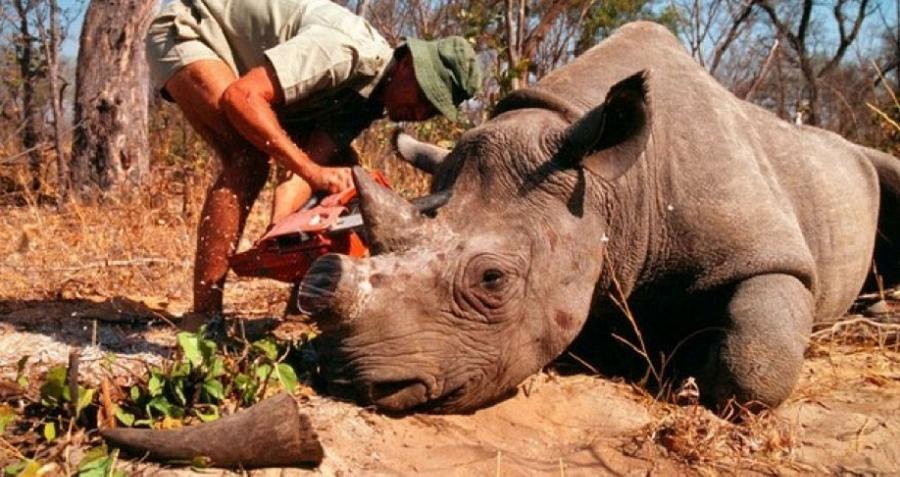
EcoJust/Tomniekamp
Defendants of big game hunting often say that the practice helps spread money around in economically depressed areas and encourages conservation efforts in places where large mammals are mostly a nuisance for farmers and herders. One South African tour company claims that all of its rhino hunts target old and unproductive herd members who are past their reproductive prime and “[add] nothing” to the species.
These proponents are correct in their assertion that hunting safaris cost money, which is spent to hunt in low-density/low-scenery areas unarmed tourists usually wouldn’t bother to visit. Their view is that European and American millionaires help these depressed regions by paying an arm and a leg for the privilege of hunting animals they could never find at home. Indeed, the only study ever done on hunting’s economic impact determined that the trade contributes around $200 million a year to some of the poorest countries in Africa.
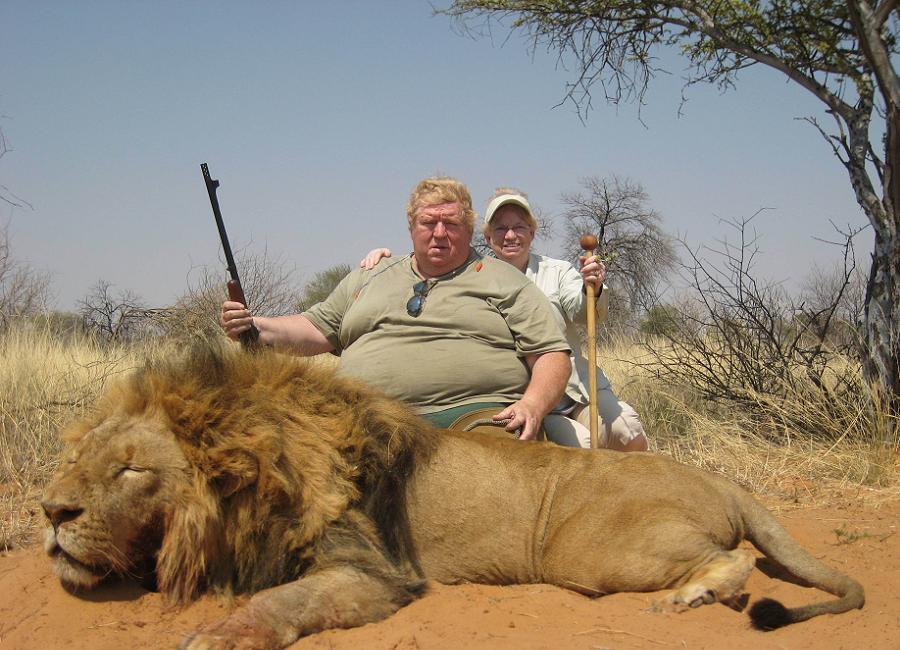
YouTube/ImSo4ChinIT
That same study, however, also found that regular, non-shooting tourism is worth more than $36 billion, and the way the cash gets spent differs enormously. A safari where nothing gets killed can be organized either by a tour company or by a regular travel agent. In either case, much of the money guests spend on the trip will go more or less directly to the local economy for things like hotel accommodations and “traditional” souvenir masks made specifically to sell to tourists.
Big game trips, on the other hand, are almost always booked through an agency based in Europe or America, or which is at least partly foreign-owned. Guests stay at the agencies’ hotels, buy their products, make use of their employees — many of whom are themselves foreign-born — and then pay huge sums to taxidermists back home.
In a sense, the hard currency the hunters bring is yo-yo money: it drops into Zimbabwe for a week, spins for a few days, and then it hops right back out of the local economy and goes back to the countries it came from. Very little changes on the ground, except now the most hunted countries have approximately 50,000 fewer wild animals than they did the year before.
Legal Murkiness And Double Standards
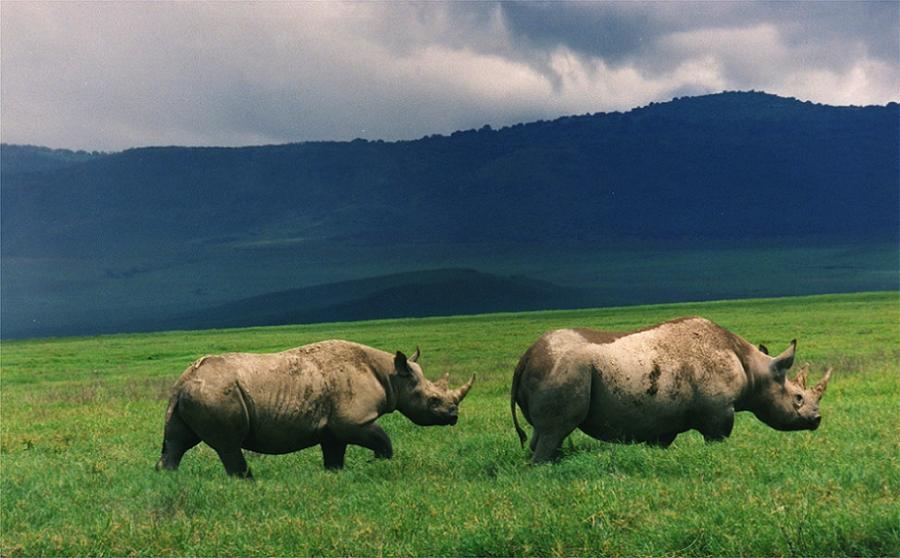
Wikimedia Commons
As you can imagine for an industry that caters to wealthy men, the international game hunting system is shot through with loopholes and special exemptions for people with the time and money to take advantage of them.
The first major loophole is that virtually all competition is priced right out of the hunting business.
Impoverished farmers in Chad, to use an example by Peter LaFontaine, a campaigns officer with the International Fund for Animal Welfare (IFAW), are told that their hunting practices are illegal poaching because they don’t have tens of thousands of dollars to buy a license. In other words, the animals the locals’ ancestors have hunted time out of mind are off-limits and left free to roam through local farms and eat whole crops until a “. . . rich, white hunter from Texas” shows up with the proper permits.
Adding insult to injury, the acquired permits themselves are not necessarily 100 percent legal. In 2015, the government of Namibia (currently ranked 45 out of 168 for corruption worldwide by Transparency International) sold a permit to hunt a black rhinoceros for $350,000. Nobody who’s willing to talk about it seems to know how this critically endangered animal was put up for sale to the Dallas Safari Club, but they are quick to say the transaction was legal and in accord with international treaties covering the trade in exotic and threatened animals.
Another major loophole exists in US law. Importing hunting trophies to the United States requires more than just a license; the US Fish and Wildlife Service has a million dos and don’ts to follow, and each rule has the force of law.
Bringing any kind of protected-species hunting trophy into the United States requires the Service’s permission, meaning that if you get caught smuggling one dead parrot across the border you could be looking at federal prison. African lions like Cecil, on the other hand, are not considered controlled imports, so hundreds of them sail right through customs every year, regardless of how they were obtained.
The fact that Cecil lived in a protected area, was shot wearing a radio collar, and that the government of Zimbabwe is currently seeking extradition of the American dentist who shot him is apparently none of the American government’s business.
Big game hunting in Africa is serious business for tens of thousands of people who manage, between them, to bag around 50,000 animals a year in countries that make relatively little real money in exchange for their native fauna. Officially, hunting helps to protect vulnerable animals in their few remaining habitats and prevent the kind of overhunting that emptied out most of North Africa’s game parks.
Even if it’s true that hunting elephants – who form complex social systems, recognize each other’s faces, and who may even mourn their dead – or the dwindling population of wild rhinos, helps keep their species healthy, it’s hard to believe there isn’t a better way to preserve the last of the world’s great land animals.
Next, learn about the animals Zimbabwe may have to sell due to drought.





